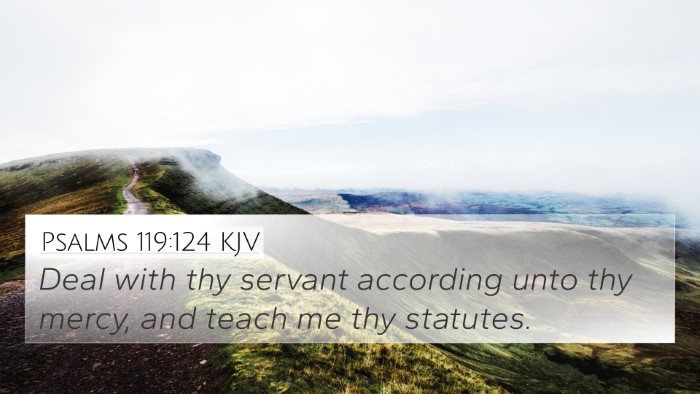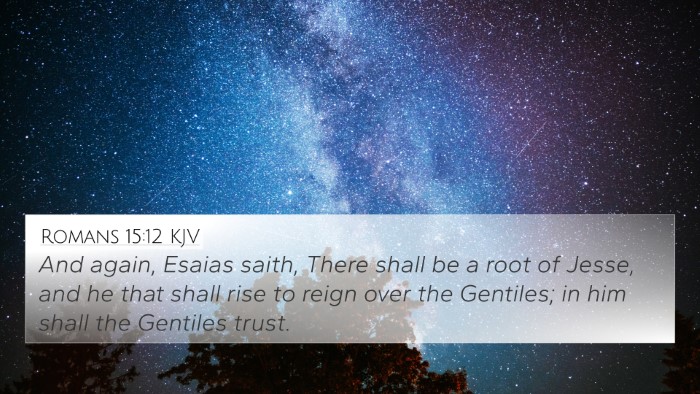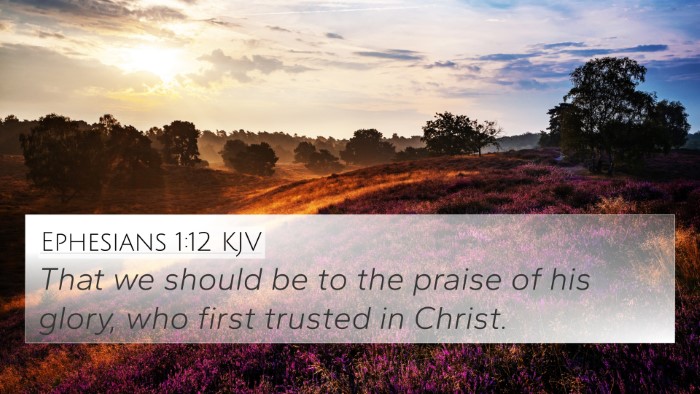Psalms 86:2 - Summary and Interpretation
Verse: "Preserve my soul; for I am holy: O thou my God, save thy servant that trusteth in thee." (Psalms 86:2)
Overview of Psalms 86:2
This verse reflects a heartfelt plea from the psalmist, underscoring the themes of reliance on God and the distinction of being set apart for divine purposes. The psalmist petitions for preservation and salvation, illustrating a deep sense of trust in God’s protection and mercy.
Commentary Insights
Matthew Henry's Commentary
Matthew Henry emphasizes the importance of soul preservation and the personal relationship between the believer and God. The term "holy" indicates the psalmist’s commitment to a life dedicated to God, which is essential for being in a right relationship that fosters trust. God's saving grace is accessible to those who exhibit reliance on Him.
Albert Barnes' Notes
Albert Barnes provides a contextual analysis that highlights the contrasts between the psalmist’s humble plea and God’s steadfast character. He notes that acknowledging one’s holiness, though imperfect, signifies a recognition of being set apart for God’s service. The context implies a deep desperation, calling upon God who is both a savior and protector.
Adam Clarke's Commentary
Adam Clarke speaks to the supplicant's condition, expressing the inner longing for God’s intervention. He also points out that trust is a crucial element of faith, echoing the sentiment that feeling secure in God’s promise is pivotal for endurance in trials. Clarke connects the plea for preservation to the broader themes of divine providence throughout the Scriptures.
Thematic Connections
Psalms 86:2 resonates with numerous theological themes, including the concept of trust in God, the nature of holiness, and the cry for salvation. Below are several related Bible cross-references that enhance understanding:
- Psalms 25:20 - "O keep my soul, and deliver me: let me not be ashamed; for I put my trust in thee."
- Psalms 31:23 - "O love the LORD, all ye his saints: for the LORD preserveth the faithful, and plentifully rewardeth the proud doers."
- Psalms 121:7 - "The LORD shall preserve thee from all evil: he shall preserve thy soul."
- Isaiah 41:10 - "Fear thou not; for I am with thee: be not dismayed; for I am thy God: I will strengthen thee; yea, I will help thee."
- Philippians 1:6 - "Being confident of this very thing, that he which hath begun a good work in you will perform it until the day of Jesus Christ."
- 2 Timothy 1:12 - "For the which cause I also suffer these things: nevertheless I am not ashamed; for I know whom I have believed, and am persuaded that he is able to keep that which I have committed unto him against that day."
- 1 Peter 5:7 - "Casting all your care upon him; for he careth for you."
Connections Between Bible Verses
This verse serves as a nexus for understanding the broader biblical narrative surrounding God's character as a savior and protector. The linkage of Psalms 86:2 to other passages underscores a deeper theological dialogue within Scripture. We observe that each reference reiterates themes of trust, preservation, and the call for divine intervention.
Tools for Bible Cross-Referencing
To explore the connections between Bible verses effectively, readers can utilize various tools:
- Bible concordances to locate themes and key terms.
- Cross-reference Bible study guides for thematic connections.
- Comprehensive Bible cross-reference materials for deeper studies.
- Online databases and software that allow for quick access to cross-referenced scriptures.
- Printed reference Bibles that include annotations and cross-references in the margins.
Conclusion
Psalms 86:2 stands as a profound testament to human vulnerability and the need for divine salvation. Through examining this verse alongside public domain commentaries, we garner rich insights into the interplay of trust and holiness within the believer’s life. Engaging with cross-referenced scriptures further elucidates the cohesive narrative found throughout the Bible, enhancing our understanding of God’s saving grace and our call to trust Him wholly.

























